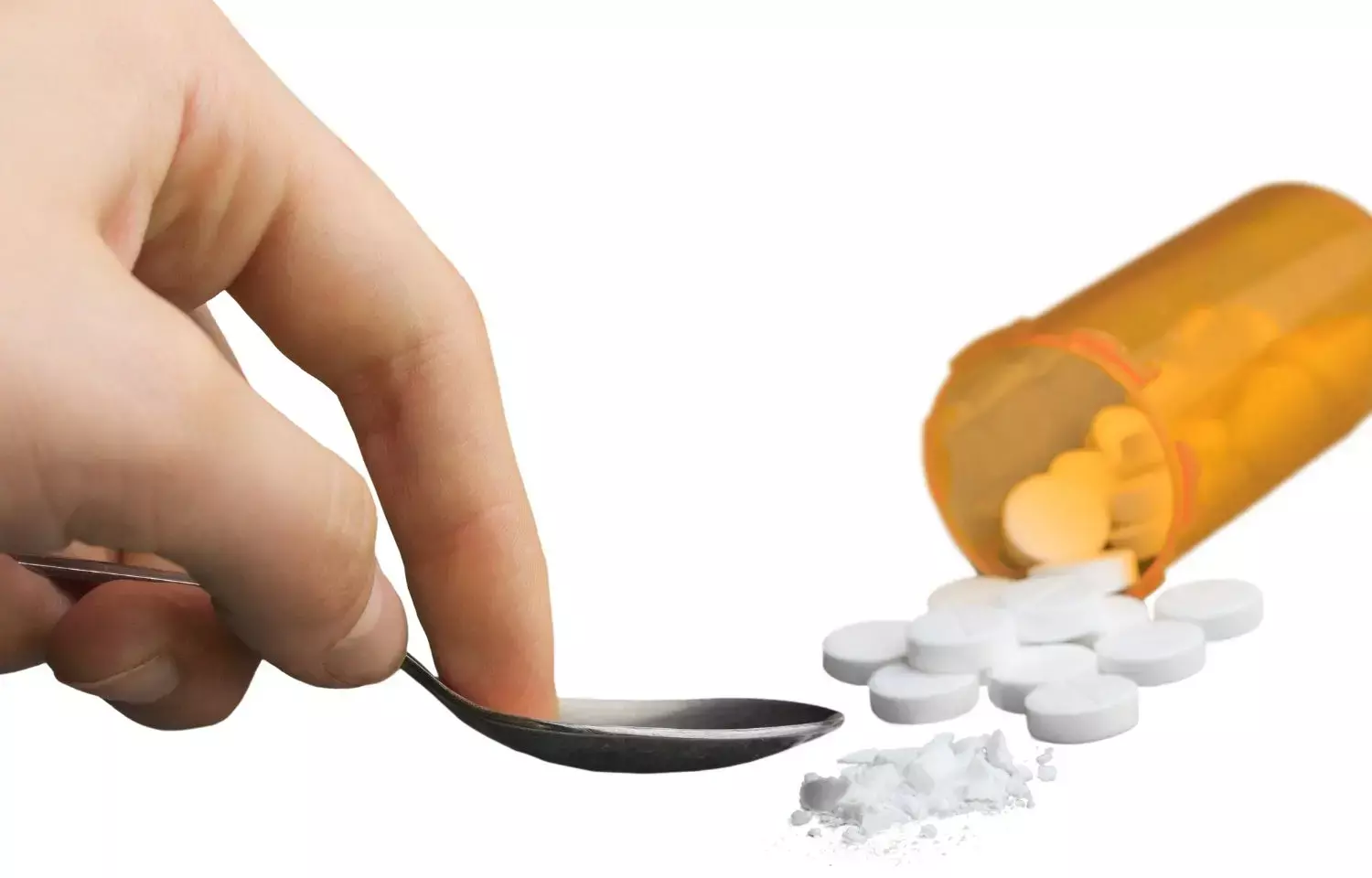- Home
- Medical news & Guidelines
- Anesthesiology
- Cardiology and CTVS
- Critical Care
- Dentistry
- Dermatology
- Diabetes and Endocrinology
- ENT
- Gastroenterology
- Medicine
- Nephrology
- Neurology
- Obstretics-Gynaecology
- Oncology
- Ophthalmology
- Orthopaedics
- Pediatrics-Neonatology
- Psychiatry
- Pulmonology
- Radiology
- Surgery
- Urology
- Laboratory Medicine
- Diet
- Nursing
- Paramedical
- Physiotherapy
- Health news
- Fact Check
- Bone Health Fact Check
- Brain Health Fact Check
- Cancer Related Fact Check
- Child Care Fact Check
- Dental and oral health fact check
- Diabetes and metabolic health fact check
- Diet and Nutrition Fact Check
- Eye and ENT Care Fact Check
- Fitness fact check
- Gut health fact check
- Heart health fact check
- Kidney health fact check
- Medical education fact check
- Men's health fact check
- Respiratory fact check
- Skin and hair care fact check
- Vaccine and Immunization fact check
- Women's health fact check
- AYUSH
- State News
- Andaman and Nicobar Islands
- Andhra Pradesh
- Arunachal Pradesh
- Assam
- Bihar
- Chandigarh
- Chattisgarh
- Dadra and Nagar Haveli
- Daman and Diu
- Delhi
- Goa
- Gujarat
- Haryana
- Himachal Pradesh
- Jammu & Kashmir
- Jharkhand
- Karnataka
- Kerala
- Ladakh
- Lakshadweep
- Madhya Pradesh
- Maharashtra
- Manipur
- Meghalaya
- Mizoram
- Nagaland
- Odisha
- Puducherry
- Punjab
- Rajasthan
- Sikkim
- Tamil Nadu
- Telangana
- Tripura
- Uttar Pradesh
- Uttrakhand
- West Bengal
- Medical Education
- Industry
Use of some diabetes drugs linked to risk of acute gallbladder disease, FDA reports

Patients who take glucagon-like peptide-1 receptor agonists for weight loss or management of diabetes may be at risk of acute gallbladder disease.
USA: In a recent study published as a research letter in JAMA Internal Medicine, the FDA presented the results of its reviewal of the FDA Adverse Event Reporting System (FAERS). The review was done to identify cases of acute cholecystitis (AC) tied to the intake of glucagon-like peptide-1 (GLP-1) agonists that did not have warnings and precautions on acute gallbladder disease.
The study found 36 cases of acute cholecystitis among patients taking GLP-1 receptor agonists for weight loss or diabetes medications, 42% of whom experienced the disease onset within three months of starting treatment, and three of the patients died.
The researchers from FDA identified postmarketing cases of acute cholecystitis from 2005 to 2016 in 21 patients taking exenatide (Byetta), seven on semaglutide (Ozempic), seven taking dulaglutide (Trulicity), and one patient taking lixisenatide (Adlyxin).
Other findings of the study are as follows:
- Thirty of the cases were treated with cholecystectomy and two resolved with ursodeoxycholic acid treatment and discontinuation of the GLP-1 receptor agonist.
- Of the three patients who died, two had pancreatitis and one died from fatal liver necrosis.
- In 42% of the cases, patients experienced disease onset within 90 days from the time of treatment initiation.
According to Daniel Woronow, and colleagues from the US Food and Drug Administration, the case series are in accordance with the results of a recent meta-analysis of 76 randomized trials that detected an association between cholecystitis and GLP-1 receptor agonists. The potential mechanisms include suppression of cholecystokinin secretion, weight loss, and reduced gallbladder emptying, they explained.
Based on pathology reports, diagnosis by a healthcare provider, or compatible signs and symptoms treated with cholecystectomy, a total of 36 cases of acute cholecystitis were identified. Patients with cholelithiasis or cholecystitis prior to the use of a GLP-1 receptor agonist or cases where an alternative cause of cholecystitis was suspected were excluded.
Nine patients were shown to have weight loss before diagnosis (mean 7.6 kg). 2 patients were also receiving fenofibrate, which comes with a labeled warning of cholelithiasis.
The study findings are significant as some GLP-1 RAs indicated for blood sugar control in type 2 diabetes patients require labeling including precautions and warnings regarding cute gallbladder disease in the US Prescribing Information (the prescribing information approved by the US Food and Drug Administration [FDA]), while other do not.
Reference:
Woronow D, Chamberlain C, Niak A, Avigan M, Houstoun M, Kortepeter C. Acute Cholecystitis Associated With the Use of Glucagon-Like Peptide-1 Receptor Agonists Reported to the US Food and Drug Administration. JAMA Intern Med. Published online August 29, 2022. doi:10.1001/jamainternmed.2022.3810
Dr Kamal Kant Kohli-MBBS, DTCD- a chest specialist with more than 30 years of practice and a flair for writing clinical articles, Dr Kamal Kant Kohli joined Medical Dialogues as a Chief Editor of Medical News. Besides writing articles, as an editor, he proofreads and verifies all the medical content published on Medical Dialogues including those coming from journals, studies,medical conferences,guidelines etc. Email: drkohli@medicaldialogues.in. Contact no. 011-43720751


